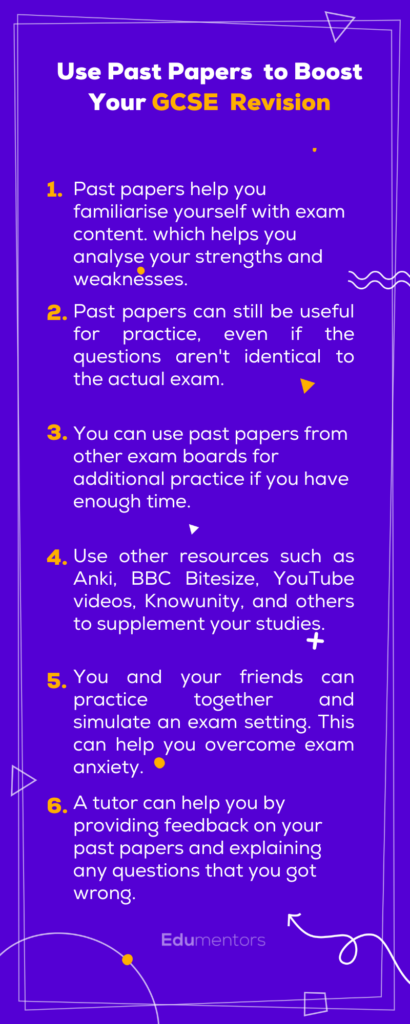Cambridge International
Paper 11
| Question Paper | Mark Scheme |
| March 2019 | March 2019 |
| June 2019 | June 2019 |
| November 2019 | November 2019 |
| March 2020 | March 2020 |
| June 2020 | June 2020 |
| November 2020 | November 2020 |
| June 2021 | June 2021 |
| November 2021 | November 2021 |
| June 2022 | June 2022 |
| November 2022 | November 2022 |
Paper 12
| Question Paper | Mark Scheme |
| March 2019 | March 2019 |
| June 2019 | June 2019 |
| November 2019 | November 2019 |
| March 2020 | March 2020 |
| June 2020 | June 2020 |
| November 2020 | November 2020 |
| March 2021 | March 2021 |
| June 2021 | June 2021 |
| November 2021 | November 2021 |
| March 2022 | March 2022 |
| June 2022 | June 2022 |
| November 2022 | November 2022 |
Paper 13
| Question Paper | Mark Scheme |
| March 2019 | March 2019 |
| June 2019 | June 2019 |
| November 2019 | November 2019 |
| March 2020 | March 2020 |
| June 2020 | June 2020 |
| November 2020 | November 2020 |
| June 2021 | June 2021 |
| November 2021 | November 2021 |
| June 2022 | June 2022 |
| November 2022 | November 2022 |
Paper 21
| Question Paper | Mark Scheme |
| March 2019 | March 2019 |
| June 2019 | June 2019 |
| November 2019 | November 2019 |
| March 2020 | March 2020 |
| June 2020 | June 2020 |
| November 2020 | November 2020 |
| June 2021 | June 2021 |
| November 2021 | November 2021 |
| June 2022 | June 2022 |
| November 2022 | November 2022 |
Paper 22
| Question Paper | Mark Scheme |
| March 2019 | March 2019 |
| June 2019 | June 2019 |
| November 2019 | November 2019 |
| March 2020 | March 2020 |
| June 2020 | June 2020 |
| November 2020 | November 2020 |
| March 2021 | March 2021 |
| June 2021 | June 2021 |
| November 2021 | November 2021 |
| March 2022 | March 2022 |
| June 2022 | June 2022 |
| November 2022 | November 2022 |
Paper 23
| Question Paper | Mark Scheme |
| March 2019 | March 2019 |
| June 2019 | June 2019 |
| November 2019 | November 2019 |
| March 2020 | March 2020 |
| June 2020 | June 2020 |
| November 2020 | November 2020 |
| June 2021 | June 2021 |
| November 2021 | November 2021 |
| June 2022 | June 2022 |
| November 2022 | November 2022 |
Paper 31
| Question Paper | Mark Scheme |
| March 2019 | March 2019 |
| June 2019 | June 2019 |
| November 2019 | November 2019 |
| March 2020 | March 2020 |
| June 2020 | June 2020 |
| November 2020 | November 2020 |
| June 2021 | June 2021 |
| November 2021 | November 2021 |
| June 2022 | June 2022 |
| November 2022 | November 2022 |
Paper 32
| Question Paper | Mark Scheme |
| March 2019 | March 2019 |
| June 2019 | June 2019 |
| November 2019 | November 2019 |
| March 2020 | March 2020 |
| June 2020 | June 2020 |
| November 2020 | November 2020 |
| March 2021 | March 2021 |
| June 2021 | June 2021 |
| November 2021 | November 2021 |
| March 2022 | March 2022 |
| June 2022 | June 2022 |
| November 2022 | November 2022 |
Paper 33
| Question Paper | Mark Scheme |
| March 2019 | March 2019 |
| June 2019 | June 2019 |
| November 2019 | November 2019 |
| March 2020 | March 2020 |
| June 2020 | June 2020 |
| November 2020 | November 2020 |
| June 2021 | June 2021 |
| November 2021 | November 2021 |
| June 2022 | June 2022 |
| November 2022 | November 2022 |
Paper 41
| Question Paper | Mark Scheme |
| March 2019 | March 2019 |
| June 2019 | June 2019 |
| November 2019 | November 2019 |
| March 2020 | March 2020 |
| June 2020 | June 2020 |
| November 2020 | November 2020 |
| June 2021 | June 2021 |
| November 2021 | November 2021 |
| June 2022 | June 2022 |
| November 2022 | November 2022 |
Paper 42
| Question Paper | Mark Scheme |
| March 2019 | March 2019 |
| June 2019 | June 2019 |
| November 2019 | November 2019 |
| March 2020 | March 2020 |
| June 2020 | June 2020 |
| November 2020 | November 2020 |
| March 2021 | March 2021 |
| June 2021 | June 2021 |
| November 2021 | November 2021 |
| March 2022 | March 2022 |
| June 2022 | June 2022 |
| November 2022 | November 2022 |
Paper 43
| Question Paper | Mark Scheme |
| March 2019 | March 2019 |
| June 2019 | June 2019 |
| November 2019 | November 2019 |
| March 2020 | March 2020 |
| June 2020 | June 2020 |
| November 2020 | November 2020 |
| June 2021 | June 2021 |
| November 2021 | November 2021 |
| June 2022 | June 2022 |
| November 2022 | November 2022 |
Paper 51
| Question Paper | Mark Scheme |
| March 2019 | March 2019 |
| June 2019 | June 2019 |
| November 2019 | November 2019 |
| March 2020 | March 2020 |
| June 2020 | June 2020 |
| November 2020 | November 2020 |
| June 2021 | June 2021 |
| November 2021 | November 2021 |
| June 2022 | June 2022 |
| November 2022 | November 2022 |
Paper 52
| Question Paper | Mark Scheme |
| March 2019 | March 2019 |
| June 2019 | June 2019 |
| November 2019 | November 2019 |
| March 2020 | March 2020 |
| June 2020 | June 2020 |
| November 2020 | November 2020 |
| March 2021 | March 2021 |
| June 2021 | June 2021 |
| November 2021 | November 2021 |
| March 2022 | March 2022 |
| June 2022 | June 2022 |
| November 2022 | November 2022 |
Paper 53
| Question Paper | Mark Scheme |
| March 2019 | March 2019 |
| June 2019 | June 2019 |
| November 2019 | November 2019 |
| March 2020 | March 2020 |
| June 2020 | June 2020 |
| November 2020 | November 2020 |
| June 2021 | June 2021 |
| November 2021 | November 2021 |
| June 2022 | June 2022 |
| November 2022 | November 2022 |
Paper 61
| Question Paper | Mark Scheme |
| March 2019 | March 2019 |
| June 2019 | June 2019 |
| November 2019 | November 2019 |
| March 2020 | March 2020 |
| June 2020 | June 2020 |
| November 2020 | November 2020 |
| June 2021 | June 2021 |
| November 2021 | November 2021 |
| June 2022 | June 2022 |
| November 2022 | November 2022 |
Paper 62
| Question Paper | Mark Scheme |
| March 2019 | March 2019 |
| June 2019 | June 2019 |
| November 2019 | November 2019 |
| March 2020 | March 2020 |
| June 2020 | June 2020 |
| November 2020 | November 2020 |
| March 2021 | March 2021 |
| June 2021 | June 2021 |
| November 2021 | November 2021 |
| March 2022 | March 2022 |
| June 2022 | June 2022 |
| November 2022 | November 2022 |
Paper 63
| Question Paper | Mark Scheme |
| March 2019 | March 2019 |
| June 2019 | June 2019 |
| November 2019 | November 2019 |
| March 2020 | March 2020 |
| June 2020 | June 2020 |
| November 2020 | November 2020 |
| June 2021 | June 2021 |
| November 2021 | November 2021 |
| June 2022 | June 2022 |
| November 2022 | November 2022 |
Pearson Edexcel
Paper 1P
| Question Paper | Mark Scheme |
| June 2019 | June 2019 |
| January 2020 | January 2020 |
| November 2020 | November 2020 |
| January 2021 | January 2021 |
| June 2021 | June 2021 |
| January 2022 | January 2022 |
Paper 1PR
| Question Paper | Mark Scheme |
| June 2019 | June 2019 |
| January 2020 | January 2020 |
| November 2020 | November 2020 |
| January 2021 | January 2021 |
| January 2022 | January 2022 |
Paper 2P
| Question Paper | Mark Scheme |
| June 2019 | June 2019 |
| January 2020 | January 2020 |
| November 2020 | November 2020 |
| January 2021 | January 2021 |
| June 2021 | June 2021 |
| January 2022 | January 2022 |
Paper 2PR
| Question Paper | Mark Scheme |
| June 2019 | June 2019 |
| January 2020 | January 2020 |
| November 2020 | November 2020 |
| January 2021 | January 2021 |
| June 2021 | June 2021 |
| January 2022 | January 2022 |
FAQ About IGCSE Physics

What Topics are in Physics IGCSE?
The IGCSE Physics syllabus covers a broad range of topics that provide students with a solid foundation in the subject. The exact topics can vary slightly depending on the exam board (like Cambridge or Edexcel), but generally, the following topics are included:
General Physics
This topic includes measurement and uncertainties, motion, and forces, work, energy and power, pressure, and density.
Thermal Physics
This includes thermal expansion, measurement of temperature, kinetic theory of particles, and thermal energy transfer methods like conduction, convection, and radiation.
Properties of Waves, Including Light and Sound: This topic deals with properties of waves, sound, light, and the electromagnetic spectrum.
Electricity and Magnetism
This covers charge and current, potential difference, resistance, electrical energy and power, simple circuits, magnetism, and electromagnetism.
Atomic Physics
This includes the structure of the atom, isotopes, radioactive decay, nuclear energy, and the uses and dangers of radiation.
Energy Resources and Energy Transfer
Here, students learn about different forms of energy, energy resources, and how energy is transferred.
Solids, Liquids, and Gases
This topic covers the three states of matter, changes in states, gas laws, and pressure.
Forces and Motion
This includes concepts like speed, velocity, and acceleration, forces, motion, and moments.
Radioactivity and Particles
This covers atomic structure, radioactivity, nuclear reactions, and fundamental particles.
In addition to the theoretical concepts, the course usually involves practical experiments related to these topics to give students a hands-on understanding of Physics. It’s always important to consult the latest syllabus or course guide from your examination board for the most accurate and up-to-date information.
Who Administers the IGCSE Physics Examination?
IGCSE Physics examination is administered by various examination boards. The most prominent ones include:
Cambridge Assessment International Education (CAIE) – Also known as Cambridge International, this organisation is part of the University of Cambridge and offers IGCSE exams in over 160 countries worldwide.
Pearson Edexcel – This UK-based organisation also offers IGCSE exams and is particularly well-known in British Commonwealth countries and in international British schools around the world.
These examination boards set the syllabus, conduct the exams, and are responsible for marking and grading. Each board may have slight differences in their syllabus and exam format, so it’s important for students to be familiar with the specific requirements of the exam board they are studying under.
Is IGCSE Physics Harder than GCSE Physics?
The difficulty between IGCSE Physics and GCSE Physics can be somewhat subjective and depends on several factors including the specific syllabus, the student’s background and understanding of the subject, and their study habits.
However, there are a few general observations that can be made:
Content
The IGCSE Physics syllabus is often considered more rigorous and comprehensive than the GCSE, as it was originally designed for international students and often covers some additional topics or goes into more depth.
Examinations
The exam style can also vary. IGCSE exams are often more traditional in format, focusing on written, end-of-course exams. GCSEs, meanwhile, can involve a mix of written exams, coursework, and practical assessments, depending on the specific subject. However, since physics does not involve coursework, both of them have 3 papers, this is not the main difference between them.
Grading
IGCSEs use a grading scale from A* to G, while GCSEs use a numeric scale from 9 (highest) to 1 (lowest). Many IGCSE exam boards have also adopted the 9-1 scale to align with UK GCSE systems. Understanding the IGCSE grade boundaries is crucial for students as these boundaries determine the minimum marks needed for each grade and can change yearly based on exam difficulty and overall student performance. Some argue that achieving the top grades (A* or 9) can be more challenging in IGCSEs due to the course’s comprehensive nature.
How Should I Prepare for the IGCSE Physics Exam?
Preparing for the IGCSE Physics exam involves a combination of understanding the syllabus, studying the material, practicing problems, and revising regularly. Here are some tips to help you prepare effectively:
The first step is to familiarise yourself with the syllabus. Know the topics you need to cover and the depth to which you need to understand them. You can download the syllabus from the website of the examination board (such as Cambridge or Edexcel).
Use textbooks and study guides that are specifically designed for IGCSE Physics. They will cover the topics you need to know in the right amount of detail.Many students also use Physics and Maths Tutor resources to supplement their regular materials.
Regular attendance at school or tutorial classes will help you keep pace with the subject matter and provide opportunities for you to ask questions and clarify doubts.
Don’t leave all your studying to the last minute. Regular revision will help reinforce your understanding of the subject matter and make it easier to recall information during the exam.
Past examination papers are a valuable resource. They can help familiarize you with the format of the exam and the types of questions you might encounter. Aim to solve as many past papers as you can. This approach is effective for all IGCSE science subjects – students preparing for life sciences can similarly benefit from practicing with IGCSE Biology past papers.
Physics is a subject where understanding the underlying concepts is crucial. Don’t just memorize equations and facts; aim to understand the principles behind them.
Physics involves a lot of problem-solving. Practice solving different types of problems, and make sure you understand the processes involved.
If your syllabus includes practical assessments, make sure you understand how to conduct experiments and record results. This can often help reinforce your understanding of the theory.
Last but not least, maintain a balanced diet and ensure you are getting enough sleep. This will keep you physically and mentally ready for studying and ultimately for the exam.
Don’t hesitate to ask for help if you need it. Whether it’s a teacher, tutor, or study group, others can provide support, explain difficult concepts, and help you understand the subject better.
Remember, success in exams comes from consistent study over time, rather than last-minute cramming. By following these steps, you should be well-prepared for your IGCSE Physics exam.
Are There any Prerequisites for Taking IGCSE Physics?
Generally, there are no strict prerequisites to take IGCSE Physics. However, some skills and knowledge can make the course more manageable:
Mathematics Skills
Physics involves a good deal of mathematical reasoning and problem-solving. Students should ideally have a good grasp of basic mathematics, including algebra and geometry, as these skills will be utilised frequently in Physics.
Basic Scientific Knowledge
Having a good understanding of basic scientific principles, particularly in the area of Physical Science, can be beneficial. This includes understanding the scientific method, how to conduct experiments, and how to record and interpret results.
Language Proficiency
Since the course and exam materials are typically in English, a good level of English proficiency is necessary to understand the content, follow instructions, and effectively communicate your understanding in the exams.
Previous Study of Science
While not a strict requirement, having previously studied a science subject (e.g., in lower secondary school) can be helpful for the understanding of scientific terminology and concepts.
Remember, these are not strict requirements and plenty of students successfully tackle IGCSE Physics without all of them. However, having these skills will make the learning process smoother and more enjoyable. If you’re unsure about your readiness, speak with your teacher or an educational advisor. They can give you personalised advice based on your individual strengths and areas for improvement.
What Can I Do After Completing IGCSE Physics?
Completing IGCSE Physics opens up several avenues for further study and career options. Here are a few possibilities:
Further Study in Physics
After IGCSE, you could continue studying Physics at a more advanced level, such as A Levels, International Baccalaureate (IB), or Advanced Placement (AP) courses. These can prepare you for university studies in Physics or related fields.
Study in Related Fields
Physics is a foundational science and is beneficial for many fields of study. It’s particularly relevant if you plan to study Engineering, Astronomy, Computer Science, Environmental Science, Medicine, Architecture, and many other science and technology-related fields.
University Admission
Good grades in IGCSE Physics can support university applications, especially for programs in Science, Technology, Engineering, and Mathematics (STEM).
Vocational and Technical Courses
You might opt for vocational or technical courses that require a knowledge of physics, such as automotive engineering, electronics, aviation technology, and more.
Careers
While you’ll likely need further education beyond IGCSE, a background in Physics can lead to a wide variety of careers, including engineer, doctor, research scientist, teacher, data analyst, software developer, astronaut, and more. Physics helps develop problem-solving skills, logical thinking, and numerical skills, which are valuable in almost any profession.
Personal Enrichment
Studying Physics can also simply be for personal growth and understanding of the world. It helps us understand the natural phenomena happening around us, from why the sky is blue to how our universe works.
Remember, your next steps after completing IGCSE Physics will depend on your personal interests, career goals, and educational aspirations. It’s a good idea to discuss these with a teacher, guidance counselor, or career advisor to make the best decision for your future.








